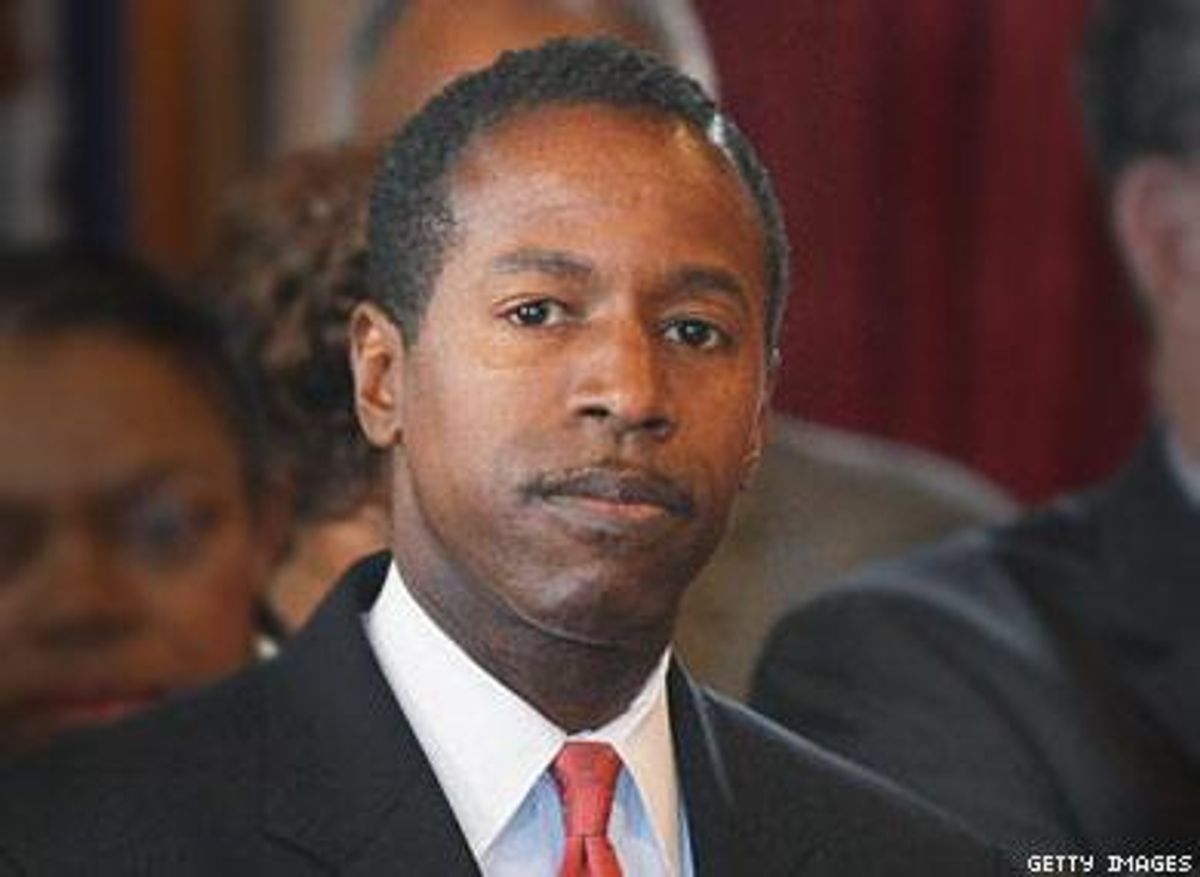As hundreds of
gay New Yorkers joined thousands across the country to
protest for marriage rights Thursday, the prospect of a
marriage-equality bill making it through the New York
state legislature has dimmed, though activists say the
curtain hasn't fallen yet.
New York senate
majority leader Malcolm Smith told attendees of the Human
Rights Campaign Gala on Saturday that he strongly supports
the right of same-sex couples to marry but that the
votes are still lagging in the senate.
"Although
we do not have the number of votes at this time needed to
pass the marriage-equality agenda bill this
legislative session, we are committed to pursuing its
passage," Smith said, "and the question is not
if, the question is when. So our work still needs to happen
for it to happen this year, but I'll need your help
and I'll need your prayers."
Though some
people took Smith's comments as an indication that
the 2009 marriage effort was all but dead, LGBT
leaders were not as pessimistic.
"I am cautiously
optimistic that if the community does the work we need
to do in the districts we need to do them in, then we have a
good chance at winning marriage equality this year,"
Alan Van Capelle, executive director of the Empire
State Pride Agenda, told The Advocate. Van Capelle
said he had already had 15 "very productive" meetings
with state senators this session and, although he
declined to say where the vote count stood, he added,
"I think we're closer than most people think, but we're
certainly not there yet."
Ethan Geto, a
Democratic strategist, agreed that the bill is still
shy on support, but said, "that is true for many
pieces of legislation at the start of a legislative
session that ultimately pass later in the
session."
Geto cited the
example of the state assembly's 2007
marriage-equality effort, which lacked the votes at
the outset of the legislative session in January but
eventually passed in June by a vote of 85-61. The push was
helped when then-governor Eliot Spitzer made good on a
campaign promise and introduced his own
marriage bill, known as a "program bill" in
Albany.
Asked if Gov.
David Paterson might follow suit, Van Capelle said,
"I don't particularly think we need a program bill this year
from the governor -- a program bill is usually a
signal to the legislature that a bill has the support
of the governor. The governor has gone out of his way
to support marriage equality, and so a program bill would
serve no tactical function in helping us win marriage
equality in 2009."
One more factor
lighting a fire underneath senate Democrats is the
political reality that the Democratic caucus likely would
not have gained a majority in the state senate without
gay funding -- a price tag The New York Times put at
about $500,000 in an October 25, 2008, article,
though many political insiders say the
figure easily topped $1 million when all was said
and done.
"The
[Democratic] majority understands just how central the LGBT
community is to their victory -- and their political
fortunes in the future," Geto said.
Smith was clear
on that point, specifically mentioning the contributions
of LGBT advocacy groups the Gill Action Fund, the Human
Rights Campaign, and the Empire State Pride Agenda
toward flipping the state senate to Democratic
control.
"Most people
don't recognize, they fail to grasp, how significant
this particular campaign was," Smith said. "Not to minimize
what happened in Washington -- I am thrilled about
Barack Obama, the first African American president in
the United States of America. But you can't take away
what Gill [Action Fund], what HRC, and what [the Pride
Agenda] has done in the state of New York."
Smith assured the
crowd that he would "never forget" the time
and effort contributed by gay activists and added that
even though people are used to politicians saying one
thing and doing another, "that's not
going to happen this year."
The expansiveness
of Smith's comments on marriage equality and LGBT
civil rights -- even invoking Dr. Martin Luther King
Jr. from an Alabama jail saying, "whatever
affects one of us affects all indirectly" -- is,
at the very least, a positive sign of his commitment to
advancing gay legislation. Just months ago, reports
surfaced that Smith may have promised socially
conservative Democrats he would delay a vote on gay
marriage in 2009 in order to secure his spot as the
Democratic majority leader. Smith eventually walked
away from those discussions but won the leadership
post nonetheless.
If gay activists
still question his commitment to LGBT concerns, his
speech aimed to quell their doubts.
"As the national
debate over gay marriage continues, we are winning in
the court of public opinion," he said. "I
believe that the opponents are gripped by a kind of
all-consuming passion, if you will, to derail the
rights of same-sex couples to unite under the Lord. But
there is a spreading consciousness that your vision,
your positive vision, will ultimately prevail."
Whether it
prevails this year or next is still in the hands of the
fates. But the window of opportunity is not infinite,
as Gov. David Paterson, who is probably the most
pro-LGBT leader the state has ever seen, will
undoubtedly face a tough reelection bid in 2010.


















































































